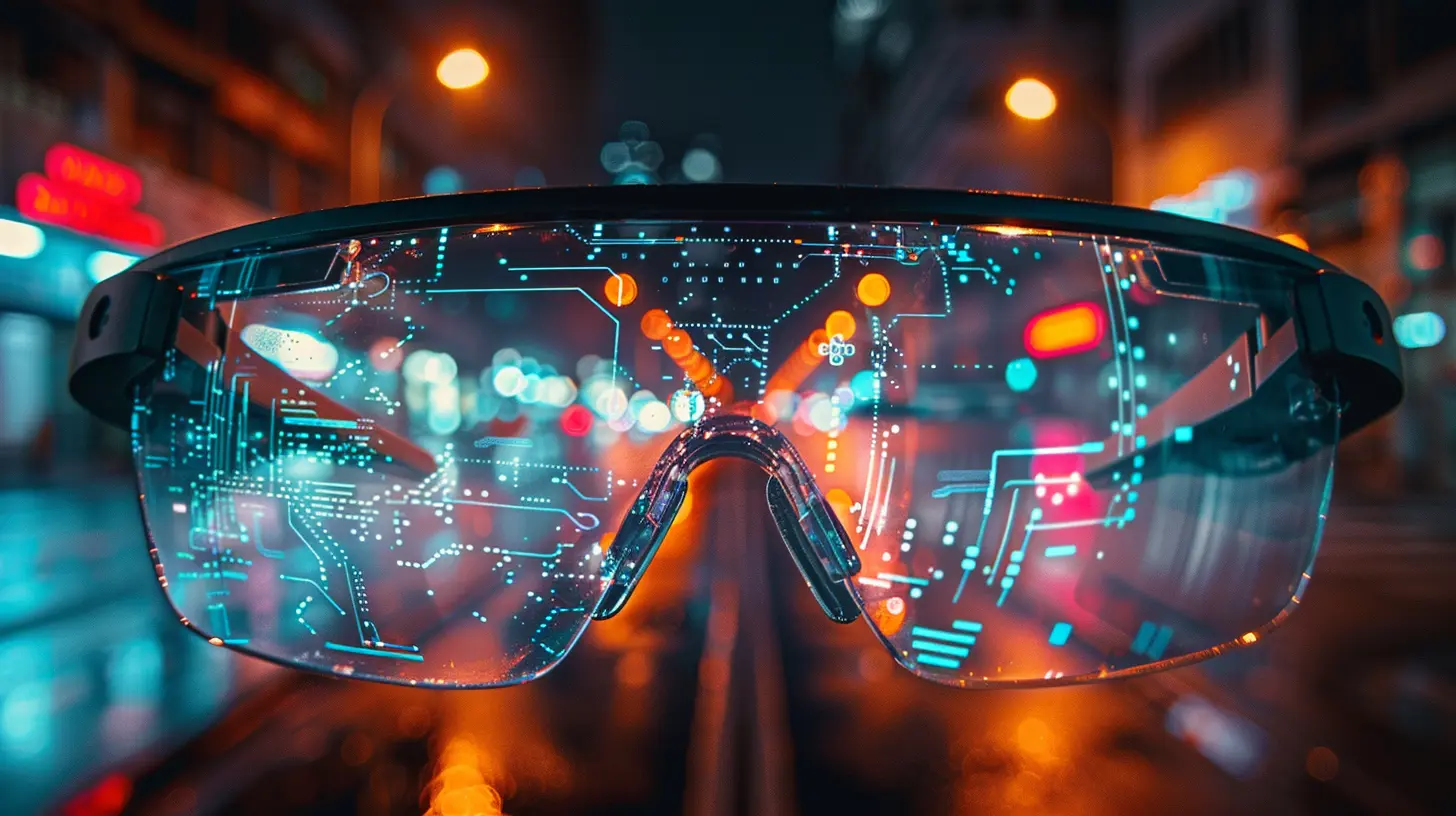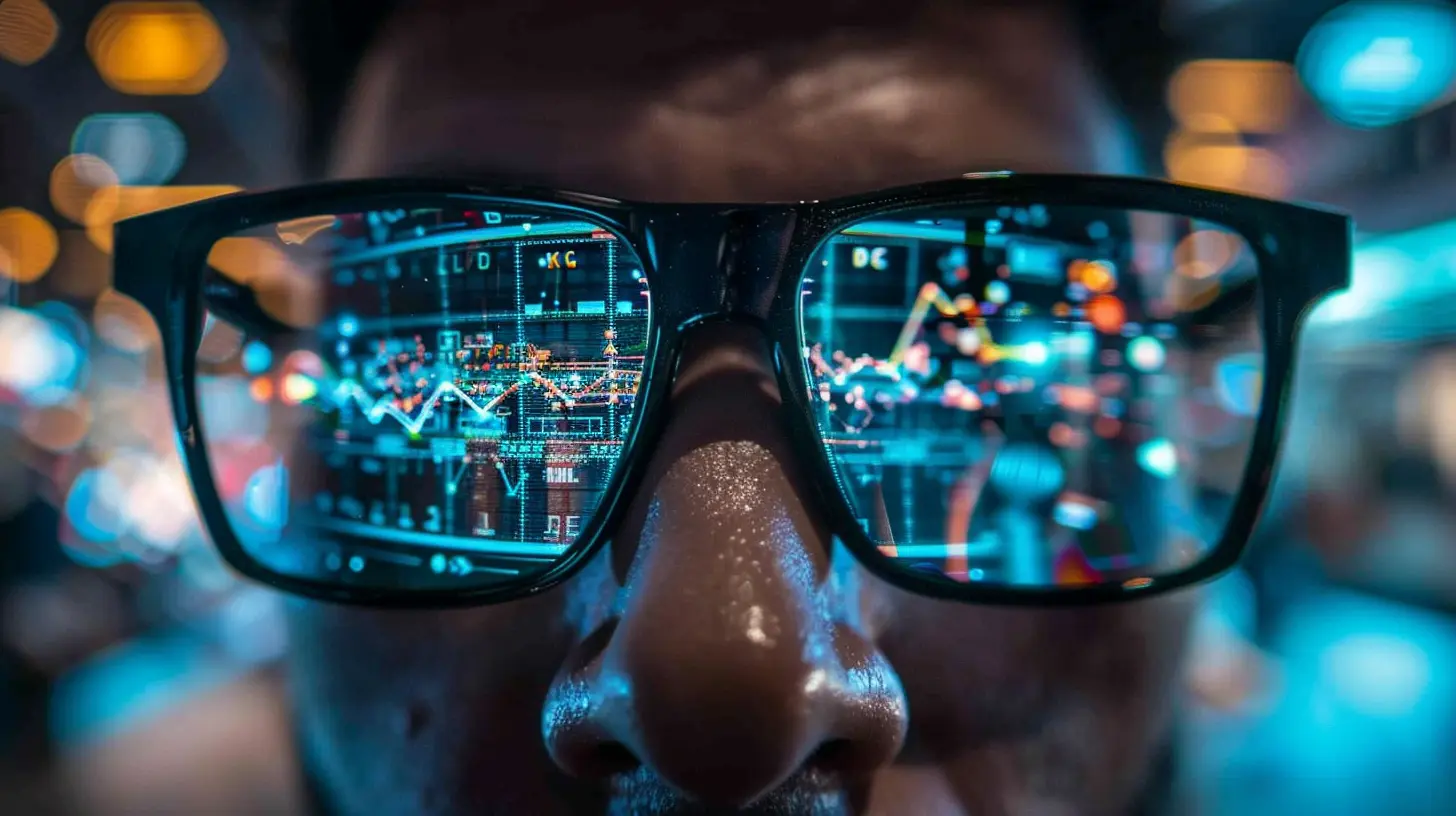The Intersection of AR Glasses and Artificial Intelligence
25 September 2025
Augmented Reality (AR) and Artificial Intelligence (AI) are two groundbreaking technologies shaping the future. But when combined, they unlock a whole new level of possibilities. Imagine wearing smart glasses that don’t just display information but actually understand and interact with the world around you. That’s where we’re headed!
In this article, we’ll dive deep into how AR glasses and AI are merging, what this means for industries and everyday life, and the challenges that come with it. Ready? Let’s break it down. 
What Are AR Glasses?
Before we talk about AI, let's define AR glasses. These aren't just simple lenses with a heads-up display. AR glasses overlay digital content onto the real world. Think of them as a futuristic version of a smartphone but hands-free.Some AR glasses only display static images, while others use sensors and cameras to map surroundings and adjust visuals accordingly. But to make them truly smart, AI steps in. 
How AI Enhances AR Glasses
Artificial intelligence brings AR glasses to life by adding the ability to process, recognize, and react to the environment. Here’s how AI makes a difference:1. Computer Vision for Real-World Understanding
AI-powered AR glasses use computer vision to recognize objects, faces, and even text in real time. This allows for:- Instant translations (great for travelers)
- Identifying landmarks or products
- Enhanced accessibility for visually impaired users
For example, AI-based AR glasses can scan a restaurant menu in another language and overlay the translated text in real-time—no more struggling with Google Translate!
2. Voice and Gesture Control
AI enables AR glasses to understand voice commands and even recognize hand gestures. Instead of pulling out a smartphone, you can simply say, “Show me the nearest coffee shop,” and get guided directions right in your field of view.Imagine swiping through emails or controlling your playlist just by moving your fingers in the air—just like in a sci-fi movie!
3. Personalized Experiences with AI Assistants
Just like Siri or Google Assistant, AI-enhanced AR glasses can provide smart suggestions. Whether you're shopping, commuting, or working, they can offer real-time advice based on your habits and preferences.For instance, while strolling through a shopping mall, your AR glasses might suggest a great deal on an item you’ve been searching for online. Convenience taken to the next level! 
How Industries Are Adopting AI-Powered AR Glasses
The combination of AR and AI isn’t just for tech enthusiasts—it’s revolutionizing multiple industries. Let’s take a look at a few:1. Healthcare: Surgeons and Medical Training
Doctors can use AR glasses to receive real-time assistance during surgeries. AI helps by overlaying crucial patient data and identifying key areas during procedures.For medical students, AR glasses can provide interactive training, making learning more immersive and effective.
2. Retail: Virtual Try-Ons and Smart Shopping
Brands like Nike and Warby Parker are already leveraging AR for virtual try-ons. AI takes this a step further by analyzing customer preferences, suggesting products, and even predicting fashion trends.Imagine walking into a clothing store and your AR glasses instantly showing how an outfit would look on you—without changing a thing!
3. Manufacturing and Engineering
AI-powered AR glasses help factory workers by displaying assembly instructions and detecting errors in real-time. This boosts efficiency and reduces mistakes, making work much smoother and safer.4. Education: Interactive Learning
Students can experience history, science, and art in ways never before possible. AI-powered AR glasses can bring 3D models to life, turning a simple lesson into an engaging experience.Instead of reading about the solar system, students can “visit” planets through AR, making learning far more exciting. 
Challenges Facing AI-Powered AR Glasses
As promising as they are, AI-powered AR glasses aren’t without hurdles. Here are a few major challenges:1. Privacy Concerns
With AR glasses equipped with cameras and AI processing, privacy concerns are inevitable. Will people be comfortable knowing they might be recorded anywhere? Striking a balance between innovation and privacy is crucial.2. Battery Life and Performance
AI requires substantial processing power, which drains battery life quickly. Current AR glasses struggle to last an entire day without frequent recharges. Advancements in battery technology will be essential for widespread adoption.3. Affordability
High-tech smart glasses don’t come cheap. The cost of AI-powered AR glasses remains a barrier for everyday consumers, but as technology advances, prices should come down.4. Social Acceptance
Remember the backlash against Google Glass? Many people weren’t ready for the idea of smart eyewear. For AR glasses to become mainstream, they need to be stylish, functional, and socially acceptable.The Future of AI and AR Glasses
Despite the challenges, the future of AI-powered AR glasses looks incredibly promising. Companies like Apple, Meta, and Microsoft are pushing boundaries to create seamless AR experiences.We might soon reach a point where AR glasses replace smartphones altogether. Instead of looking down at a screen, we’ll interact with digital content naturally, right in front of our eyes.
Imagine walking into a grocery store, and your glasses automatically generate a shopping list based on your past purchases. Or attending a conference where AI provides real-time subtitles in multiple languages.
The convergence of AR and AI isn’t just about convenience—it’s about redefining how we interact with the digital world.
Final Thoughts
AR glasses powered by AI represent a significant shift in technology. While still in their early stages, they hold the potential to revolutionize healthcare, retail, education, and many other industries.Yes, there are some hurdles to overcome—privacy, battery life, cost—but innovation is moving fast. The dream of fully immersive, AI-powered AR glasses isn’t far off.
So, the next time someone asks you what the future of tech looks like, just point to your smart glasses. Because AI-driven AR is about to change everything!
all images in this post were generated using AI tools
Category:
Ar GlassesAuthor:

Jerry Graham
Discussion
rate this article
1 comments
Lindsey McLaughlin
In realms where visions blend and dreams align, AR glasses meet AI’s spark divine. A dance of light, with wisdom’s embrace, Transforming our world, each glance a new space.
October 4, 2025 at 11:31 AM

Jerry Graham
Thank you for your poetic take! It beautifully captures the transformative potential of AR glasses and AI at their intersection.


